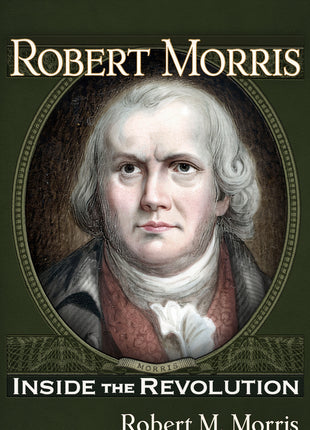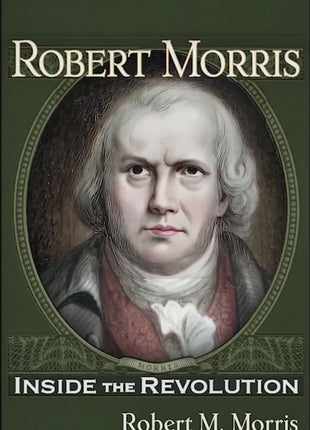Description
America is a country full of entrepreneurs, but few know the historical basis for their existence. The country's history is presented as a narrative where slave holding farmers of the South, and the hard scrapple fishermen and sailors of New England somehow created a nation that utilizes banks, credit, manufacturing and commerce to become the richest nation on earth. This makes no sense, so to the answer to the question they add in Hamilton, who was a political appointee for five years. Oddly, Hamilton was not an entrepreneur. The winners write the history. Robert Morris's party, the Federalists, lost the election of 1800, after that there was little interest in explaining Morris's contributions, his struggles, or his victories. This is why so many people know only the caricature painted by his political opposites, i.e., Robert Morris went bankrupt, but few people know any more than that about him. There's no propaganda like old propaganda, I guess, so this is why modern historians don't like making room for him in the panoply of Founding Fathers. Too bad for them. Morris was no third tier player. During his lifetime, Morris operated an international smuggling network, financed the war, ran the Continental Navy, started the first bank, held the first executive office, had an interest in 250 privateer vessels and used some of these to attack the British slave trade. He started the mint, provided the designs for the first six ships in the Navy he championed, got rid of religious test laws, helped Hamilton become Secretary of the Treasury, chaired 40 senatorial committees, and signed all three founding documents, just for example. Only one of those accomplishments would have made a career. For his trouble, Morris was investigated for years by his political opposites, and ultimately their treachery contributed to his downfall. Morris isn't overlooked because he did too little, but rather because he did so much, for so many, that his practical contributions make others, who excelled only at politics, look puny in comparison. Leaving Morris out, also satisfies small minded people who think there were no great men in history. Omitting Morris makes the current narrative look a bit flimsy, as it rests on false theories of exploitation, and myths of inevitability. The reaction to that slanted view provides the basis for so many of the misunderstandings we see in America today. This book weaves Robert Morris back into the story of America's founding. This naturally, forces the reader to understand how a radical idea like laissez-faire capitalism contributed to independency. The book also provides context for the American Revolution, and demonstrates the political, cultural, and economic forces of the day. Morris, an immigrant and orphan at 16, was the personification of American capitalism. His ideas in favor of economic development, industrialization, trade, and the growth of the middle class, ran headlong into the culture of the distressed cavaliers within the Old Dominion. Exploring this conflict reveals how our modern system arose far from the farms and fields of the 18th century, and instead, grew out of the spirit of risk coming from the merchant traders in the bustling port cities. Some of the content fills in long overlooked details, so be prepared to have your eyes opened. For example, many people think the arrival of the French fleet at Yorktown in 1781, was some kind of miracle, but they were not told that Morris, as Agent of Marine, coordinated that arrival with Washington's. Fewer still know America went bankrupt before Morris was called in, or that he personally put up more money for the war during one year, than all the states combined. This book uncovers these, and many other back stories that have been glossed over, over the years. Robert Morris, Inside the Revolution is based on the facts; many are surprising, some are not pretty, but after reading this, today's America will make more sense.
Read more less



